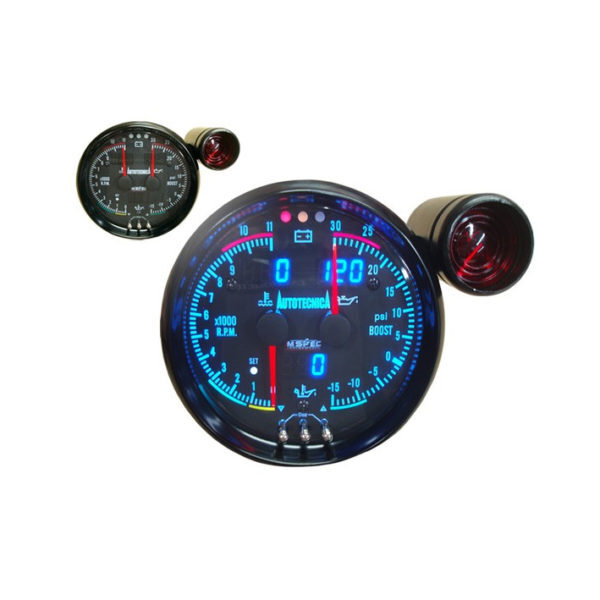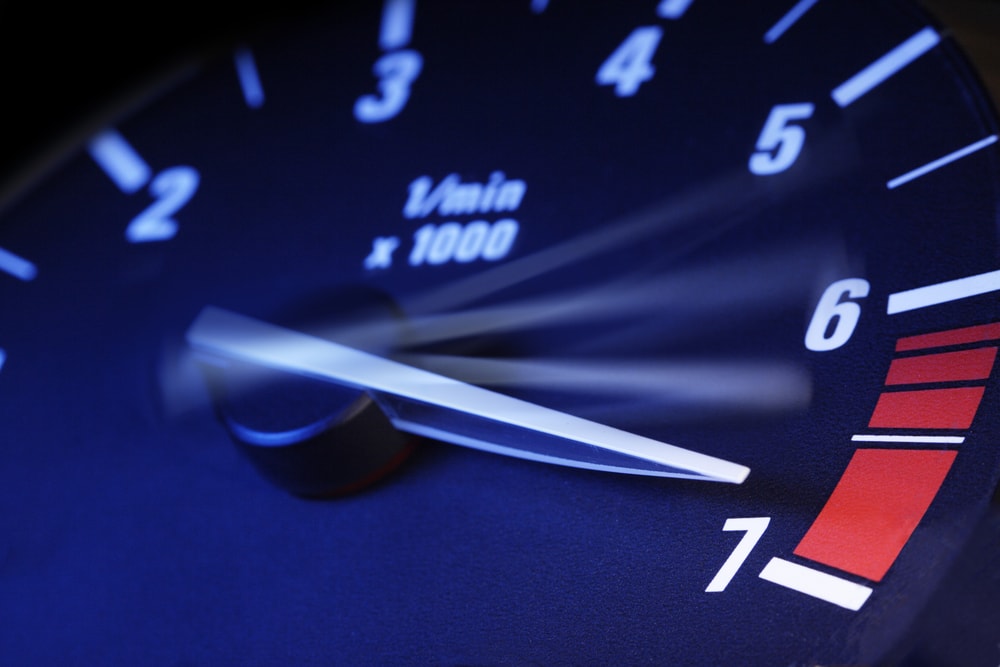Improve Your Driving Experience with a Trustworthy Tachometer
Improve Your Driving Experience with a Trustworthy Tachometer
Blog Article
Key Reasons Having a Tachometer Is Essential for Preserving Engine Wellness and Efficiency
In the world of auto maintenance, the relevance of a tachometer can not be overstated - tachometer. This simple yet critical instrument plays an essential duty in the upkeep of an engine's health and wellness and performance. By providing real-time data on engine speed and RPM degrees, a tachometer supplies indispensable understandings that straight impact the performance and durability of the engine. From protecting against over-revving to optimizing fuel usage, the applications of a tachometer are diverse and crucial for any car owner or lover. Why is this apparently straightforward device so essential? Let's check out the crucial factors behind its essential duty in keeping engine wellness and performance.
Avoiding Engine Over-Revving

To secure the engine from prospective damages, it is imperative to apply actions that stop over-revving, a method that can bring about expensive repair work and reduced engine lifespan. Over-revving occurs when the engine's rotational speed goes beyond the maximum limit established by the maker, triggering undue stress and anxiety on interior components such as pistons, shutoffs, and linking rods. This extreme strain can cause mechanical failures, consisting of curved valves, harmed pistons, and even tragic engine failure.
A rev limiter is a gadget that regulates the maximum RPM (revolutions per minute) of the engine by either reducing off gas circulation or spark to the engine when the pre-set limitation is gotten to. Normal upkeep checks to ensure the engine is in ideal problem can additionally assist in preventing over-revving events and extending the engine's life-span.
Maximizing Gas Consumption
Efficient fuel usage plays a critical duty in optimizing the efficiency and sustainability of an engine. tachometer. Maximizing gas intake not just aids in reducing functional prices yet also minimizes the environmental impact of vehicle emissions. By utilizing a tachometer to keep track of engine speed and adjust driving practices appropriately, motorists can accomplish much better fuel efficiency
Maintaining a steady rate and staying clear of abrupt velocities and decelerations can considerably improve fuel economy. In addition, correct equipment selection based on the tachometer analyses makes certain that the engine runs within its ideal variety, leading to more reliable gas combustion.
Frequently keeping track of the tachometer can also aid determine any type of inefficiencies or mechanical concerns that may be affecting gas usage. For example, a sudden rise in fuel usage without an equivalent modification in driving habits can indicate a problem that requires focus.
Monitoring Engine Health
Keeping an eye on engine wellness is important for ensuring optimal performance and long life of the car. By utilizing a tachometer to keep an eye on engine rate, vehicle drivers can spot irregularities that may indicate prospective problems with the engine. A tachometer supplies real-time information on engine changes per min (RPM), permitting drivers to identify any type of unusual spikes or decreases in RPM that might signal problems such as misfires, worn-out components, or engine overheating.

Consistently Resources keeping track of engine health with making use of a tachometer enables vehicle drivers to address concerns without delay prior to they rise and trigger considerable damage. Discovering a decrease in RPM can suggest fuel distribution issues or a clogged up air filter, while an abrupt boost in RPM might direct to issues with the transmission or exhaust system. By remaining attentive and responsive their explanation to adjustments in engine efficiency, drivers can protect against costly fixings and make sure the overall wellness and effectiveness of their vehicle.
Increasing Engine Lifespan
Making certain the longevity of an engine calls for persistent upkeep practices and alert monitoring of crucial performance signs. Expanding an engine's life expectancy is critical for decreasing total car upkeep expenses and staying clear of unforeseen failures. A tachometer plays a significant function in this facet by offering real-time information on engine rate, allowing chauffeurs and technicians to make educated choices to avoid extreme damage.

Furthermore, routine maintenance based on tachometer readings, such as timely oil modifications and ignition system substitutes, can substantially add to prolonging the engine's durability. In general, integrating a tachometer into routine engine monitoring techniques is crucial for maintaining the engine's health and wellness and performance over the lengthy term.
Conserving Cash on Fixes
A tachometer helps in keeping an eye on the engine's RPM (revolutions per min), enabling chauffeurs to run within the recommended array. By staying within these ideal RPM degrees, excessive stress on the engine can be avoided, decreasing the chance of costly repair services due to overworking the engine.
Additionally, by making use of the data from a tachometer to practice smooth velocity and deceleration, chauffeurs can extend the life-span of their vehicle's parts, eventually saving money on maintenance and replacements. Overall, the insights given by a tachometer encourage chauffeurs to make educated choices that can protect against unnecessary deterioration on the engine, causing substantial price savings in the future.
Conclusion
Finally, a tachometer plays a critical role in maintaining engine health and effectiveness by stopping over-revving, enhancing gas intake, checking engine wellness, extending engine life-span, and conserving cash on fixings. It is an essential tool for ensuring that the engine operates within safe limits and executes at its ideal, inevitably adding to the long life and overall efficiency of the vehicle.
Report this page